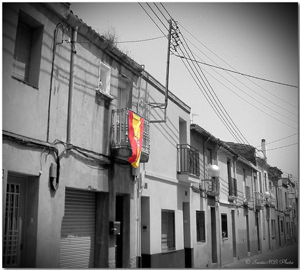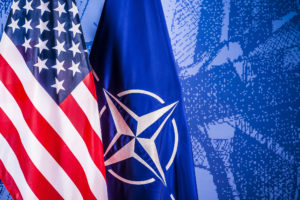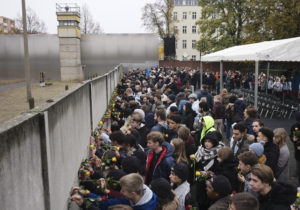Spain and Many Others Are in Cahoots With the NSA
Spanish newspaper El Mundo reports that Spain's intelligence agency collaborated with the NSA to track the phone calls of millions of Spaniards. And Spain's not the only country that's been caught red-handed. It appears the U.S. isn't alone in its obsession with spying on its own inhabitants.
Spanish newspaper El Mundo reports that Spain’s intelligence agency collaborated with the NSA to track the phone calls of millions of Spaniards. It appears the U.S. isn’t the only country that likes to spy on its inhabitants.
The European country was outraged just this week as the latest revelations from Edward Snowden’s National Security Agency leaks surfaced. These reports contained information that the NSA had monitored more than 60 million Spanish phone calls over the course of a single month. Now, El Mundo reports that not only was the Spanish government aware of the surveillance, it was in on it all along. Perhaps worse, however, is that a new report reveals that Spain’s one of many countries facilitating the passage of their residents’ information to the NSA. The Guardian reports:
An NSA document entitled “Sharing computer network operations cryptologic information with foreign partners” reportedly shows how the US relies on the collaboration of many countries to give it access to intelligence information, including electronic metadata.
According to the document seen by El Mundo, the US classifies cooperation with various countries on four different levels. In the first group – “Comprehensive Cooperation” — are the UK, Australia, Canada and New Zealand. The second group — “Focused Cooperation” — of which Spain is a member, includes 19 countries, all of them European, apart from Japan and South Korea. The third group — “Limited cooperation” — consists of countries such as France, Israel, India and Pakistan; while the fourth — “Exceptional Cooperation” — is made up of countries that the US considers to be hostile to its interests.
The reports come a day after the director of the NSA, General Keith B Alexander, testified before the US house intelligence committee that suggestions the agency monitored millions of calls in Spain, France and Italy were “completely false” and that this data had been at least partially collected by the intelligence services of those countries and then passed on to the NSA.
According to El Mundo the NSA documents explain the “specific guidance for evaluating and initiating Computer Network Operations (CNO) cryptologic cooperation with other countries, generally within existing foreign cryptologic relationships”. It outlines these telephonic and electronic surveillance operations, indicating that the results would be shared with allied countries. In short, this suggests the Spanish intelligence services were working hand in hand with the NSA, as were other foreign agencies. But if there was any doubt as to who held the upper hand, the NSA documents make clear that any collaboration was always to serve the needs of protecting American interests.
Alexander said foreign intelligence services collected phone records in war zones and other areas outside their borders and passed these on to the NSA. He said this arrangement had been misunderstood by French and Spanish newspapers, which reported that the NSA was spying in their countries.
But this explanation has not allayed European or domestic US concerns about the exact nature of NSA surveillance in allied countries.
The suggestion that the Spanish intelligence agency was working with the NSA will confirm the suspicions of many in Spain who believe that the government has not only failed to protect its own citizens’ privacy, but was actively supportive of US surveillance inside the country.
Perhaps, given that the NSA and CIA have offices in the Spanish capital of Madrid, no one can be too surprised the two countries are in cahoots. Meanwhile, to assuage concerns that the Spanish government, as Amnesty International put it, is guilty of a “total failure to protect its own citizens’ privacy,” the head of the Spanish intelligence agency CNI, Félix Sanz Roldán, has been called to explain collaborations between his office and the NSA “behind closed doors.”
The Guardian piece facetiously adds:
Not every line in the document is hard intelligence work, though. At one point, an NSA agent apparently writes that the Spanish agents were exceptionally helpful when they collaborated, not just at work, but also in their downtime. In Madrid, lunch apparently always took place at 2pm; the US agents were given an enjoyable bus tour of the sights of Madrid; and one dinner was accompanied by opera singers. The only disappointment came during one trip to Spain, when it rained all the time, despite the Spanish agents having promised unlimited sunshine.
—Posted by Natasha Hakimi
Your support matters…Independent journalism is under threat and overshadowed by heavily funded mainstream media.
You can help level the playing field. Become a member.
Your tax-deductible contribution keeps us digging beneath the headlines to give you thought-provoking, investigative reporting and analysis that unearths what's really happening- without compromise.
Give today to support our courageous, independent journalists.






You need to be a supporter to comment.
There are currently no responses to this article.
Be the first to respond.